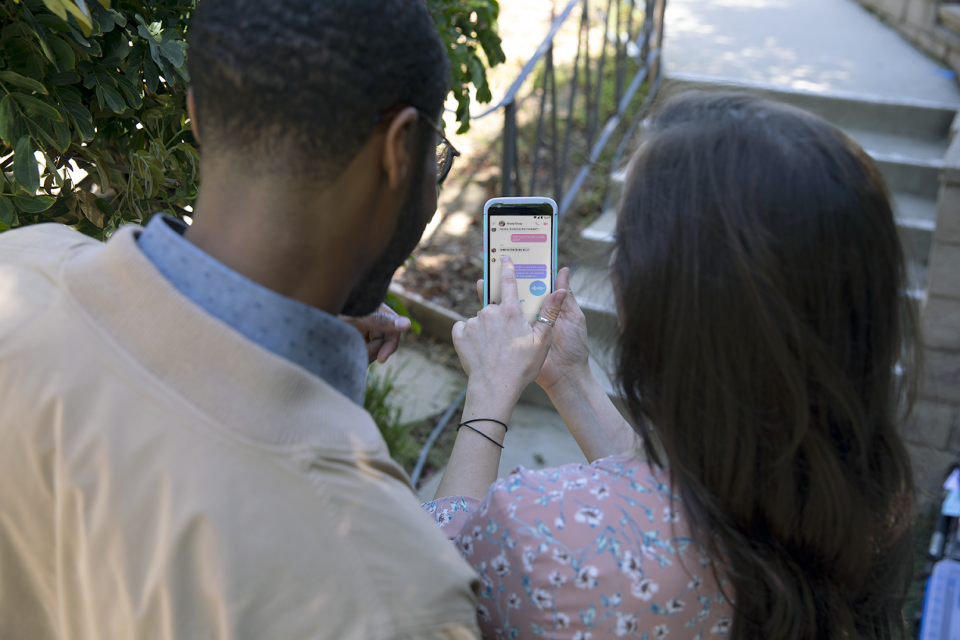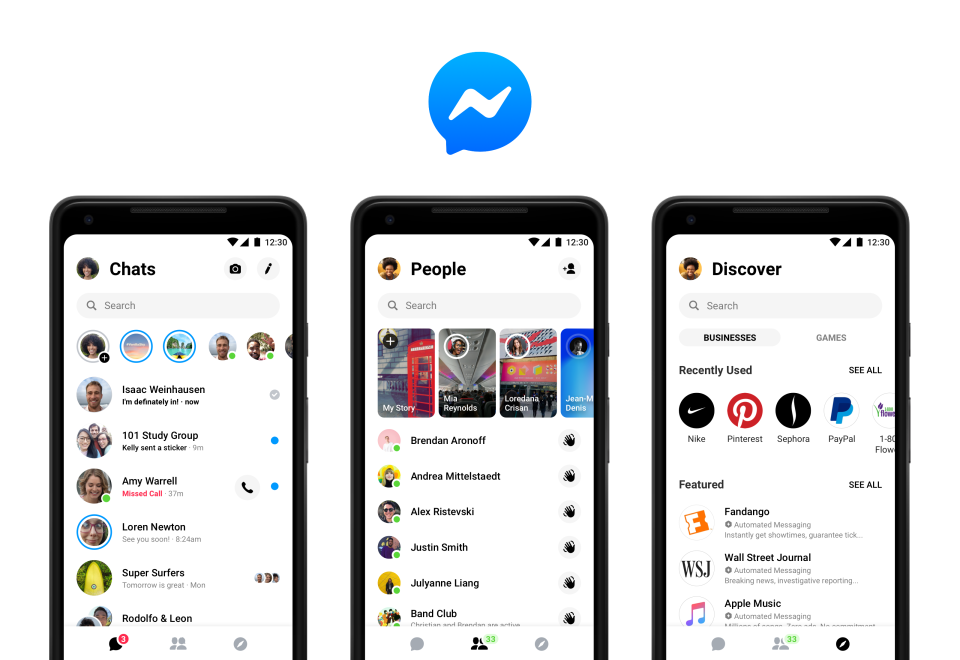Facebook rolls out a simpler Messenger app to 1.3 billion users

For months, Facebook (FB) has hinted that a streamlined version of its popular Messenger app was coming. On Tuesday, the social network finally unveiled what that updated app looks like.
The new version of Messenger rolling out to users in the coming weeks, called Messenger 4, consolidates features into three major sections: Chats (messages), People (contacts and Stories) and Discover, which serves up access to games and businesses.
“We built a lot of capabilities over the years, but it [the app] is not as simple as the app was at the beginning of our journey,” explained Facebook VP of Messenger Stan Chudnovsky at an event on Tuesday in San Francisco. “We were at a fork [in the road]: we either continue to pile on or we need to build a new foundation that’s actually going to enable us to build simplicity and powerful features on top of something that’s new and goes back its roots.”
Messenger 4 also introduces a number of smaller features, including a new Dark Mode that swaps out the bright white interface that has pervaded the app since its inception for darker colors — a move that comes months after Apple (AAPL) introduced a Dark Mode of its own for its desktop operating system, MacOS Mojave. Users can also customize their chats with different colors, or color gradients, for their messages.
A long time coming

Messenger has hinted that a simpler version of the app was coming for months now ever since former Messenger chief David Marcus teased the update at Facebook’s annual F8 conference back in May.
Since Facebook spun out Messenger as a standalone app in 2014, Messenger has become one of the most popular messaging apps, alongside other services like WhatsApp, which Facebook also owns. According to Chudnovsky, the app now has 1.3 billion monthly active users, with 400 million of those people making calls and video chats and 300 million using the Stories feature on Messenger.
Over the last year alone, Messenger has expanded its features, rolling out peer-to-peer payments internationally to the UK and France, the ability for customers to chat with businesses, and the ability to capture 360-degree photos and high-definition video.
But as Messenger has grown in features and reach, so too have concerns that the popular app had become overly complex, with too many tabs and too many layers to navigate to get to some features. According to a study from Kelton Global conducted this August for Messenger, 71% of people they recently surveyed said that simplicity was the “top priority” for them in a messaging app. The strategy consulting firm polled 5,012 adults ages 18 and over in the US, UK, Australia, Canada and France.
It’s probably no surprise then that Messenger Lite, a pared-down, lightweight version of the Messenger app, has proven popular among some users and media. Indeed, Chudnovsky on Tuesday conceded Messenger Lite was one point of inspiration during the development of Messenger 4.
Still, it remains to be seen how Messenger 4 goes over with users. Although Facebook and Messenger have evolved greatly since their inception, major redesigns haven’t always been well-received by users. When Facebook redesigned user’s home pages in 2009 to display more information from their friends, some users protested, for instance.
But for now, Messenger 4 appears to be a step in the right direction to appease users craving a simpler messaging experience.
—
JP Mangalindan is the Chief Tech Correspondent for Yahoo Finance covering the intersection of tech and business. Email story tips and musings to [email protected]. Follow him on Twitter or Facebook.
More from JP:
